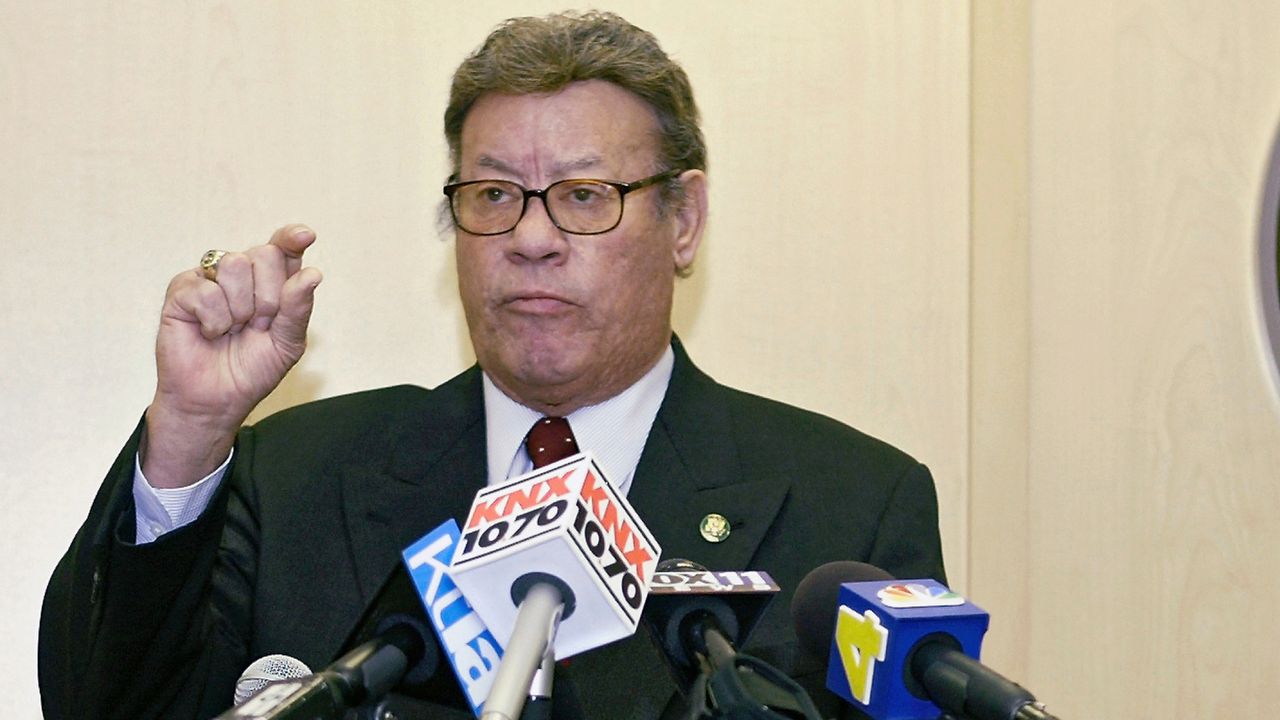LOS ANGELES (AP) — Esteban Torres, who emerged from the Chicano civil rights movement in Southern California and went on to serve eight terms in Congress pushing for social and economic change to help empower Latinos, has died. He was 91.
Torres died Jan. 25 of natural causes, according to a family statement obtained by the Los Angeles Times.
A labor organizer and anti-poverty activist in East Los Angeles, Torres became a leader of the United Auto Workers union and then served in President Jimmy Carter's administration before running for office.
“Torres was a pathbreaking public servant and a lifelong fighter for the common good,” California U.S. Sen. Alex Padilla said in a statement. “Torres’ pride in his working-class, immigrant roots and his belief in the American dream drove his dedication to labor activism and community organizing.”
As a child, Torres lived in a camp in Arizona where his father worked in the copper mines, the Times said.
Eventually, the elder Torres was deported along with more than a million other people of Mexican descent through the “Mexican Repatriation program,” even though many were U.S. citizens. Torres never saw his father again.
After graduating from Los Angeles' Garfield High School, he enlisted in the Army and served in the Corps of Engineers during the Korean War.
After becoming a union leader, Torres was appointed by President Carter as the U.S. representative to the United Nations Educational, Scientific and Cultural Organization in Paris. He also served as a White House special assistant for Hispanic Affairs until the end of Carter’s term.
The following year, Torres was elected to Congress, where he served eight terms representing the 34th Congressional District, which included much of East Los Angeles, where he was raised.
In Washington, during his first term, Torres spearheaded the first comprehensive examination of West Covina’s BKK Landfill, one of the nation’s most hazardous. He also pushed for an overhaul of the country’s consumer credit reporting policies and helped draft legislation to ensure that low-income victims of natural disasters received full federal assistance.
Torres also helped secure millions of dollars for public transit projects in Los Angeles County and beyond, according to the Times. From 1989 until 1991, he was chair of the Congressional Hispanic Caucus.
“I have reached the pinnacle of success in my own eyes,” Torres told the Times when he retired in 1999. “It’s time to let the younger generation succeed.”
After retiring from Congress, Torres served on the California Transportation Commission and was a visiting professor at Whittier College and the University of California, Los Angeles.
Along with former Los Angeles County Supervisor Gloria Molina, he was a founder of LA Plaza de Cultura y Artes, a museum in downtown Los Angeles that explores the cultural influence of Latinos in the city.
Torres also was an accomplished artist, his work displayed at galleries throughout Los Angeles.
In 2010, a newly built high school in East Los Angeles was named for him, an honor more often bestowed after someone has died. Torres enjoyed stopping by the campus and speaking about his rise from East LA to Congress, the Times said.
Torres is survived by his wife, Arcy Sanchez, five children, 12 grandchildren and seven great grandchildren.



